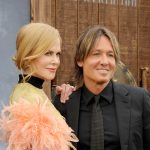Prince Andrew Stripped of Titles and Evicted from Royal Lodge: King Charles Draws a Line
Buckingham Palace dropped a bombshell yesterday, October 30, 2025, announcing that King Charles III has launched a formal process to strip his younger brother, Prince Andrew, of his royal titles and honors. The 65-year-old, once a fixture in the House of Windsor, will now go by Andrew Mountbatten Windsor, a stark demotion that severs his official ties to the monarchy. This move caps years of simmering scandal, forcing Andrew to pack up from his lavish Windsor residence, Royal Lodge, and relocate to private digs on the Sandringham Estate in Norfolk.
The palace statement cut through the usual diplomatic fog with unusual bluntness. "These censures are deemed necessary, notwithstanding the fact that he continues to deny the allegations against him," it read. Their Majesties added that their "thoughts and utmost sympathies remain with the victims and survivors of any and all forms of abuse." Royal watchers called the language a departure from protocol, signaling the king's resolve to protect the family's image amid fresh scrutiny over Andrew's past associations.

Prince Andrew in conversation with King Charles III — tensions reportedly remain high over Andrew’s continued residence at Royal Lodge amid public criticism of taxpayer costs.
The Titles and Honors Vanishing into Thin Air
Andrew's fall hits hard on the ceremonial front. He loses his "Prince" designation and the cherished "His Royal Highness" style, hallmarks of his birthright. Gone too are his subsidiary peerages: the Dukedom of York, Earldom of Inverness, and Barony of Killyleagh. Chivalric badges of prestige follow suit, including his spot in the elite Order of the Garter and his Knight Grand Cross of the Royal Victorian Order.
King Charles will issue royal warrants to Lord Chancellor David Lammy to make it official, though the changes won't rewrite history—Andrew's birth records stay intact. Earlier this month, Andrew had already stepped back from flaunting many titles voluntarily, blaming the "distractions and controversies" swirling around him. But this palace-driven purge goes further, slamming the door on any royal comeback.
The dukedom itself, as a hereditary peerage, dodges easy erasure. Parliament would need to step in to abolish or regrant it, a step experts doubt will happen soon.
Royal Lodge: End of an Era for the Windsor Mansion
Nestled in Windsor Great Park, the 30-room Royal Lodge has been Andrew's bolt-hole since 2002, a sprawling symbol of untouchable privilege. But that lease, inked in 2003 for 75 years, now crumbles under its own weight. Andrew forked over £1 million upfront and poured another £7.5 million into renovations by 2005, after which his annual rent dropped to a nominal "peppercorn"—basically pocket change for a property worth millions.
Critics have long railed against the sweetheart deal, especially as Andrew's taxpayer-funded allowance vanished last year. The Public Accounts Committee fired off letters this week to the Crown Estate and Treasury, demanding answers by late November on how public assets like this get doled out so generously. "This isn't just about family. It's not a private matter," warns Graham Smith, CEO of anti-monarchy group Republic, underscoring the broader taxpayer burden.
With formal notice served, Andrew must vacate "as soon as practicable." He'll shift to undisclosed private quarters at Sandringham, footed by family funds rather than the public purse. Ex-wife Sarah Ferguson, once Duchess of York, tags along in the exodus, charting her own path outside the royal shadow.
The Epstein Shadow That Never Fades
At the heart of this seismic shift lies Andrew's entanglement with Jeffrey Epstein, the convicted sex offender whose 2019 death didn't bury the questions. Resurfaced claims in Virginia Giuffre's posthumous memoir have reignited fury, painting a picture of "serious lapses in judgment" that the palace can no longer ignore. Andrew settled Giuffre's £12 million civil suit in 2022 without admitting fault, but the stench lingers.
Consultations with Prince William, top royals, and government brass paved the way, experts say, as the monarchy grapples with existential reputational risks. "I'm afraid this looks very, very bad for Andrew," notes royal author Ingrid Seward, zeroing in on damning details like a newly uncovered email tying him tighter to Epstein. Public life for Andrew? Expect a deep freeze—no patronages, no duties, just family whispers on the sidelines.

Aerial image of Royal Lodge in Windsor, the grand estate Prince Andrew has been ordered to vacate following the removal of his royal titles.
The Money Trail: How Andrew's Fortune Crumbles Under Scrutiny—and What It Means for You
This isn't mere pageantry; it's a financial earthquake exposing the monarchy's opaque money machine. Andrew's £1 million yearly sovereign grant got axed in 2024, leaving him with a puny £20,000 naval pension as his lone official drip. Yet he sustained Royal Lodge's £3 million annual security tab and upkeep how? Investigations, including those reviewed by Finance Monthly, point to a labyrinth of shell companies and trusts shielding investments from prying eyes—think offshore setups funneled through government-backed vehicles meant for state good, not personal gain.
One eyebrow-raiser: a £750,000 "gift" from Kazakh financier Selman Turk that Andrew repaid amid awkward questions. Peppercorn leases like his amplify the gall—while average Brits shell out 30-40% of income on housing, Andrew occupied a crown jewel for pennies after his big initial outlay. Over four decades, royals like him pocketed nearly £13 million in public funds for "work," per a 2023 Guardian probe, fueling debates on value for money.
So what? The Crown Estate's £1.1 billion 2024 net revenue profit mostly flows to the public purse via the Treasury—88% after the monarchy's 12% Sovereign Grant slice—yet perks like Andrew's lease siphon value without full accountability, indirectly hiking the costs you see in taxes or squeezed services. The real kicker: Andrew's eviction could spark wider reforms, like market-rate rents on royal homes, potentially freeing up millions for public services.
Here's the fresh insight: With Parliament's hounds now baying, watch the November Crown Estate report for clues on asset reallocations. It might reveal how £8.5 million in refurb funds (like Andrew's) get clawed back, setting precedents for privatizing underused estates. Practical move? If you're invested in UK real estate trusts or REITs tied to heritage properties, pivot toward diversified funds—royal shakeups like this could spike volatility in those sectors by 5-10% short-term, based on past scandal dips. Diversify now to shield your portfolio from the fallout.
Legal ghosts haunt too: Giuffre's settlement drained reserves, and fresh Epstein probes could pile on millions in costs. Without royal perks, Andrew's monetization routes—speeches, endorsements—dry up, squeezing his estimated £5 million net worth further.
In the End: A Monarchy at a Crossroads
Prince Andrew's unceremonious boot from titles, home, and favor marks a ruthless recalibration for the Windsors. It's prestige clashing with pounds, scandal with scrutiny, all under a king's watchful eye. As Andrew retreats to Norfolk's quieter corners, the ripple effects—on family bonds, public trust, and that elusive bottom line—promise to echo long after the moving vans roll out.
Unanswered Echoes: What Readers Are Asking Next
What Titles Is Prince Andrew Actually Losing in This Purge?
Beyond the basics, the revocation hits his Garter knighthood and Victorian Order cross, symbols of chivalric elite status that few royals reclaim once lost.
What Is Prince Andrew's Net Worth in 2025?
Clocking in at around £5 million ($6.5 million), Andrew's fortune—pieced from pensions, property sales like Sunninghill Park, and murky investments—faces fresh erosion without royal buffers, per updated Net Worth tallies.
Where Does Prince Andrew Go After Royal Lodge—and What's the Cost?
He's headed to private Sandringham pads, self-funded by Charles, ditching the £3 million yearly security bill that once tapped public veins. Expect leaner living, with Ferguson charting solo.
| Fast Facts: Prince Andrew and the Royal Lodge Fallout | |
|---|---|
| Full Name | Andrew Albert Christian Edward Mountbatten Windsor |
| Former Titles | Prince Andrew, Duke of York, Earl of Inverness, Baron Killyleagh |
| Current Status | No longer holds royal or noble titles; no longer styled as “His Royal Highness.” |
| Age | 65 |
| Announcement Date | Thursday, October 30, 2025 |
| Announced By | Buckingham Palace, on behalf of King Charles III |
| Reason for Action | “Serious lapses of judgment” and ongoing fallout from links to Jeffrey Epstein |
| Residence Change | Ordered to vacate Royal Lodge (Windsor) — relocating to Sandringham Estate, Norfolk |
| Lease Details | Previously held a 75-year lease (since 2003) with “peppercorn rent” after £7.5m refurbishment |
| Funding and Support | Royal allowance cut in 2024; King Charles to privately fund new accommodation |
| Remaining in Line of Succession | Yes — 8th in line to the British throne |
| Public Reaction | Widespread approval for decisive action; historians called the statement “brutal” but necessary |
| Financial Angle | Questions over personal wealth sources, £12m settlement costs, and use of Crown Estate property |
| Key Quote | “Ordinary people don’t care about semantics — they want to see punishment.” — Kelly Swaby, Royal Historian |
| Next Steps | Titles to be formally revoked via Royal Warrant to the Lord Chancellor (David Lammy); Andrew to vacate residence “as soon as practicable.” |













